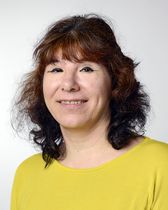Group | Bayesian Modelling and Analysis
The Bayesian Modelling and Analysis Group conducts research in advanced statistical modelling and Bayesian computation to support data-driven insights in public and global health. Our research focuses on spatio-temporal modelling and forecasting, and the modelling of multivariate health data, including the prediction and quantification of model uncertainty.
Spatio-temporal modelling is a key area of research for our group. We develop and apply Bayesian statistical methods for disease mapping, risk assessment and forecasting, with applications in malaria, neglected infectious diseases, cancer and mortality. These models generate spatially explicit estimates of disease exposure and burden, identify determinants of space–time disease distribution, and project future disease dynamics to inform public health decision-making.

 Alexandros Angelakis
Alexandros Angelakis
 Anton Beloconi
Anton Beloconi
 Erik Boros
Erik Boros
 Bryan Nyawanda
Bryan Nyawanda
 Penelope Vounatsou
Penelope Vounatsou
 Julia Walker
Julia Walker
 Chiara Zelioli
Chiara Zelioli